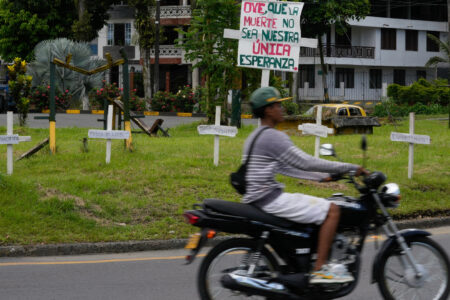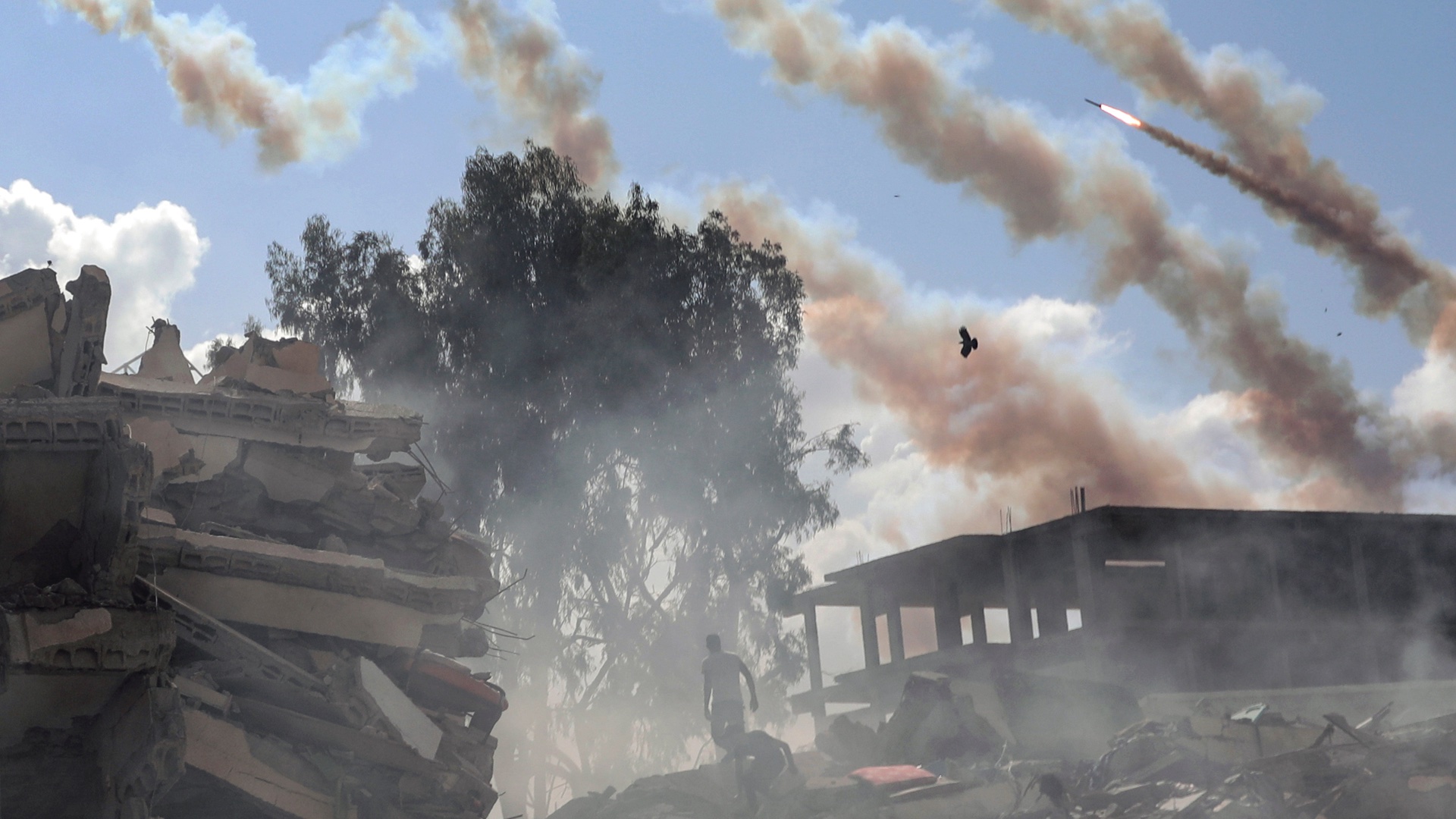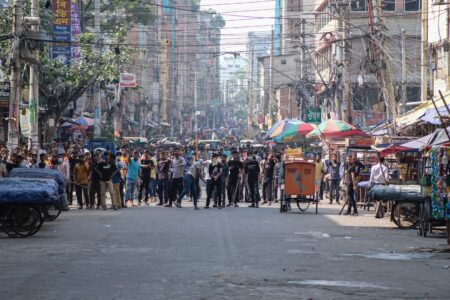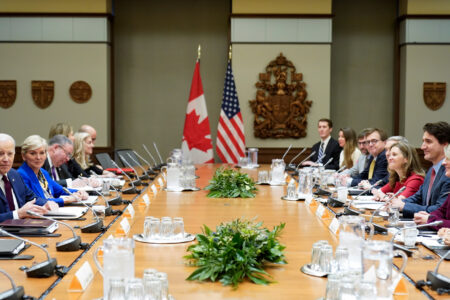
A six-year-old boy was killed and his mother badly injured in a vicious stabbing in Chicago recently. Police have arrested a 71-year-old man on murder and hate crime charges. They say the boy and his mother were targeted because they are Muslim and that the attack was in response to the conflict taking place between Israel and Hamas.
In another instance, two teenage boys and a 20-year-old man have been arrested in Toronto after making threats at a Jewish high school – an incident which police are also investigating as a possible hate crime.
These are but two examples, among many others, of the extent to which tensions in Israel and the occupied Palestinian territories are spilling over around the world, including Canada.
There has been a clear rise in antisemitic, Islamophobic and anti-Palestinian hate and violence, as well as increased fear and vulnerability within those communities. Governments and people everywhere must act immediately and urgently to resist this madness.
The escalating conflict between Israel and Hamas is exacting a staggering civilian toll. Yet, while Canada, the United States and the European Union have extended “unwavering support” to Israel, they have been far from definitive in their support for the people of Gaza.
Alongside the strong positions that Prime Minister Justin Trudeau has taken in condemning the Hamas attacks and calling for the release of hostages, he and his government must also forcefully back calls for an immediate ceasefire and for unhindered access to Gaza for humanitarian aid.
Canada must also condemn and demand an end to the Israeli military operations that are blatantly and devastatingly not in keeping with either international humanitarian law or international human rights law.
Both steps would be a major – but greatly overdue and welcome – change in Canada’s long-standing approach to the region.
As has been made abundantly clear by human rights groups and the UN Human Rights Council’s independent commission of inquiry, Hamas is responsible for war crimes in southern Israel, including indiscriminate rocket attacks, hostage-taking and summary executions.
This most recent Hamas attack has been calculatingly cruel and unimaginably violent. Those responsible for these horrific crimes must be brought to justice – but justice that is in accordance with international law, possibly through the currently blocked wider investigation of actions in the region by all sides by the International Criminal Court.
Israel’s massive siege and bombardment of Gaza is not that kind of justice. Quite the contrary, extensive, terrifying war crimes are being exacted on the entire population of Gaza, not just Hamas leaders or fighters. Illegality in response to illegality does not resemble justice in the slightest.
Close to 6,000 lives have been lost already in the armed conflict between Israel and Hamas, according to their accounts. That staggering number continues to rise daily, particularly as the unrelenting Israeli bombardment of Gaza – where more than 70 per cent of those killed have been women and children – intensifies.
Israel’s military is now poised for a massive ground invasion of Gaza and has been warning civilians in the northern part of the territory to evacuate to the south. The UN has made it clear that an evacuation of that scale before the invasion is impossible.
A ground offensive will almost inevitably force hundreds and thousands of Palestinians out of the Gaza Strip, possibly even across the fortified southern border with Egypt.
Israel’s plans have been rightly condemned as unlawful collective punishment of civilians in Gaza, more than half of whom are children. It will in no way bring either justice or security to Israelis.
All parties to the conflict and all members of the international community, including Canada, need to focus now on de-escalation, peace and protecting human rights. It is in that direction, not more bombs and military assaults, that the only hope for averting further devastation lies.
That is crucial as well, to avoid the worrying potential that other actors such as Iran and the Lebanese militia group Hezbollah will be drawn into a widening conflict.
Since 2007, Israel has imposed an air, land and sea blockade on the Gaza Strip, reinforced by Egypt’s closure of its border crossing out of Gaza at Rafah, which has caused immense suffering in the territory.
Many experts, including the UN special rapporteur on human rights in the occupied Palestinian territory, have raised the concern that this may amount to ethnic cleansing.
They also worry it might lay the ground for Israeli expansion of unlawful settlements, already commonplace in the West Bank, into Gaza as well – in further violation of international law.
The Israeli-announced “complete siege” of Gaza – with no access to food, water, electricity and fuel – amounts to a collective punishment of the civilian population, unequivocally prohibited under international law. It has to stop.
The minimal humanitarian access that opened up across Gaza’s southern border with Egypt on October 21 is nowhere near enough.
Canada must call equally for the safety of civilians in the Gaza Strip and Israel. It is no longer defensible for Canada to maintain a position of forcefully recognizing Israel’s right to defend itself – with the important qualification that Israel’s defence should be in accordance with international law – while still stopping short of what is required next.
In addition to calling for an end to military operations, another concrete indication of a new approach would be for Canada to abandon its opposition to the investigation that is currently being conducted by the International Criminal Court’s prosecutor into extensive evidence of war crimes and crimes against humanity in the occupied Palestinian territory.
The ICC investigation targets both Israelis and Palestinians. It represents a vital step forward in confronting the impenetrable impunity that has prevailed throughout the decades of this conflict.
It provides a venue for prosecuting both the crimes that were committed by Hamas, originating in Gaza, and the crimes Israel is responsible for in its response. That is something that Canada should strongly endorse, not seek to shut down.
Canada, widely seen on the world stage as a champion of international justice, is particularly well-placed to work against that impunity. Opposing the prosecutor’s important and ground-breaking investigation serves only to reinforce that impunity – a significant barrier to achieving both justice and peace.
All of this matters here in Canada as well. Jewish Canadians, as well as Palestinian and Arab Canadians, have been deeply affected and traumatized by the recent events. They both fear, and are vulnerable to, hate crimes here.
They need to be confident that their government is standing up equally for everyone’s human rights in this terrible conflict. Palestinian Canadians, Arab Canadians and Muslim Canadians very understandably do not have that confidence today.
It all comes down to the simple truth that the way toward peace in Israel and Palestine lies in fully respecting international human rights and humanitarian law. That means the rights of Israeli and Palestinians alike – an approach which must now define the way Canada deals with this crisis.










